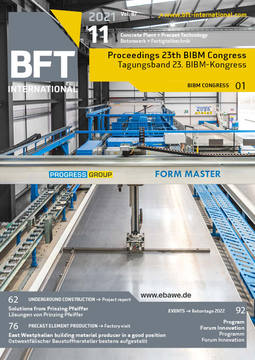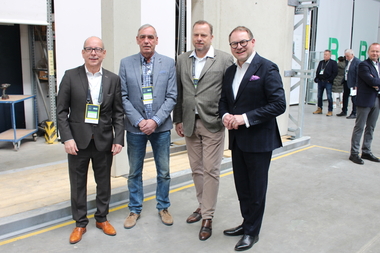Carbon neutral concrete by 2050
Concrete – as the most widely used material after water – is essential for our world. It underpins our society, providing the foundations for our homes, offices, transport networks, food and water systems, sanitation and renewable energy sources.
As the world’s population grows, and urbanization increases, concrete will be vital to meeting societal demands for infrastructure. At the same time there is a growing need for resilient construction to protect our cities and natural environment from a changing climate.
Concrete is ideal for meeting these challenges. It’s inherent properties – such as its strength, durability, resilience and near infinite versatility means it is the perfect material for an incredible variety of applications. Meanwhile, its sustainability properties such as its thermal mass that reduces heating energy requirements in buildings, recyclability, recarbonation (reabsorbing CO2 from the atmosphere) make it the sustainable building material of choice.
Carbon neutrality
The manufacture of cement is a CO2 intensive process, currently accounting for around 7% of global CO2 emissions. Because of our awareness of our materials essentiality to society and the need to create a more sustainable world, we are committed reducing this. In 2020, global the cement and concrete industry represented by the GCCA committed to producing net zero concrete by 2050, in line with global climate targets. This builds on the decades of emissions reductions over the past decades – a 20% reduction since 1990.
To outline how we will achieve this goal, we are releasing our 2050 Roadmap to Net Zero Concrete later this year. It will set a long-term vision for the industry and our value chain partners and include a clear plan for linking the technologies, strategies, policies and levers required to achieve this vision. It will also set out the actions we have to take now, and in the future, with measurable milestones, to reach the desired destination.
Building on existing comprehensive technology roadmaps produced for the cement sector, our roadmap will set out a clear pathway for concrete. It will take a circular economy approach by taking into account for example: emissions reduction in cement and concrete production, savings delivered by concrete during its lifetime, reduced demand through promoting design, material and construction efficiencies and improved standards, reuse of whole concrete structures, design for disassembly and reuse of elements, and accounting for the CO2 savings at the end of life including concrete recycling and enhanced recarbonation.
Due to be published in October 2021, the roadmap will be the essential reference point for the sector, used by third parties, companies, partners, affiliates and the GCCA in signposting our pathway to delivering society with carbon neutral concrete by 2050 in order to meet the global climate challenge.





